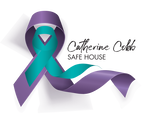|
How do I get into the shelter?
Every survivor is asked to go through a screening process before coming into the shelter. Screenings for the shelter are usually done through the crisis line, occasionally screenings can be done at the Shelter. Please call 1-800-874-5936 or 517-265-6776 if you need shelter. Who can stay at the shelter? If you have experienced domestic or sexual violence you and your children may be eligible to stay at the shelter. What about children? Children are welcome at the shelter. We have special programs and activities for children in our shelter. They go to school, receive counseling, and are offered a variety of respite activities (going to the waterpark, a ball game, a playground, etc.). Our Children’s Program Advocate meets with all moms to assess each child’s needs and develops a plan to get them met. What can I bring to the shelter? Due to the limited space in our bedrooms and the lack of storage space, clients are asked to limit what they bring. If you have time and it’s safe to do so, you are encouraged to bring your ID, birth certificates and social security cards for you and your children and any other legal documents you have (IE: divorce, custody). Staff can provide resources and help develop a plan to keep the rest of your belongings safe while living in the shelter. |
If you or someone you know needs help please call 1-800-874-5936 or 517-265-6776.
What is provided at the shelter?
Food, clothing and personal items are available to all residents. Residents work with a case manager to achieve individualized goals that help move them out of crisis situations. Legal Advocates are available to assist with Personal Protection Orders, court accompaniment and safety planning. Legal Aid services are also available to those who need legal representation. Some transportation is available for business and medical appointments. How long can I stay? Our Program is designed to offer survivors the support and education needed to achieve the goals that have been set with your case manager. We understand that everyone’s goals are different, and your ability to accomplish them differs from everyone else as well. Your length of stay is directly related to the work that you are doing to accomplish your goals. It is extremely important that you and your case manager are meeting at regularly to discuss your progress and barriers. The more she knows about your case the better she is able to help you find resources to meet your goals – and the better she is able to advocate for your continued stay in our program. What if the shelter is full? When the shelter is full, staff will help you find another place to stay. |
